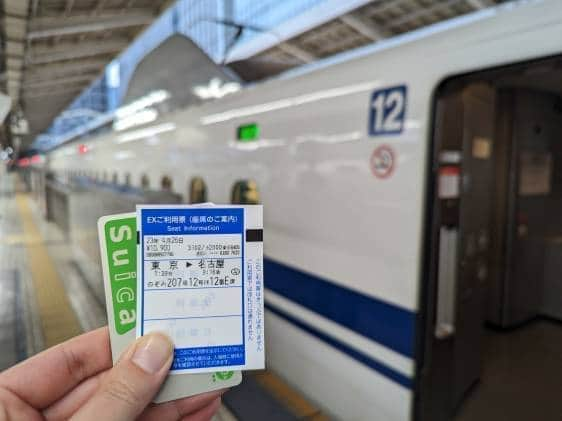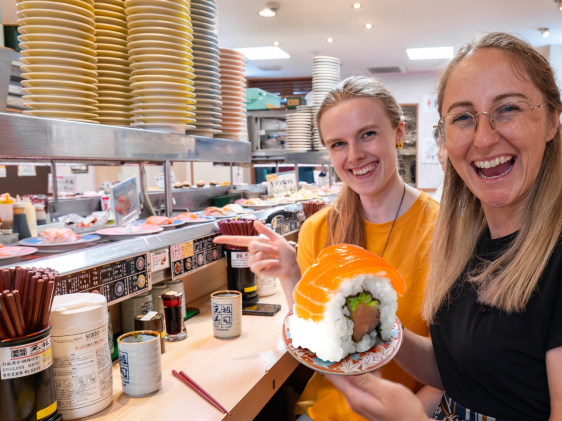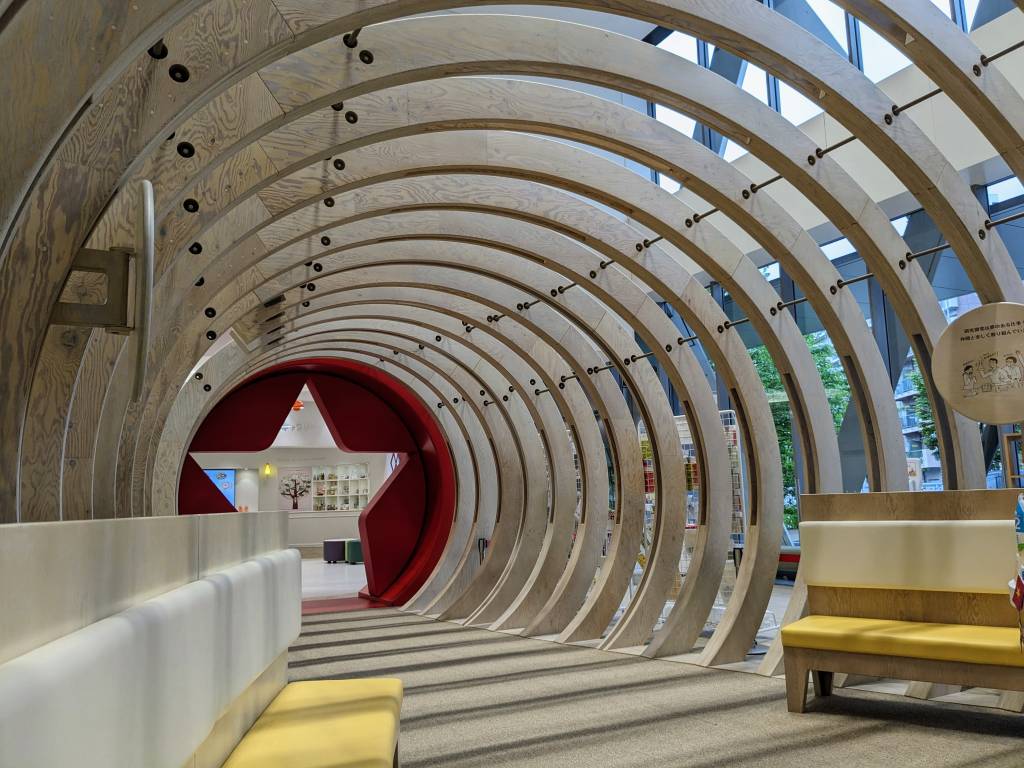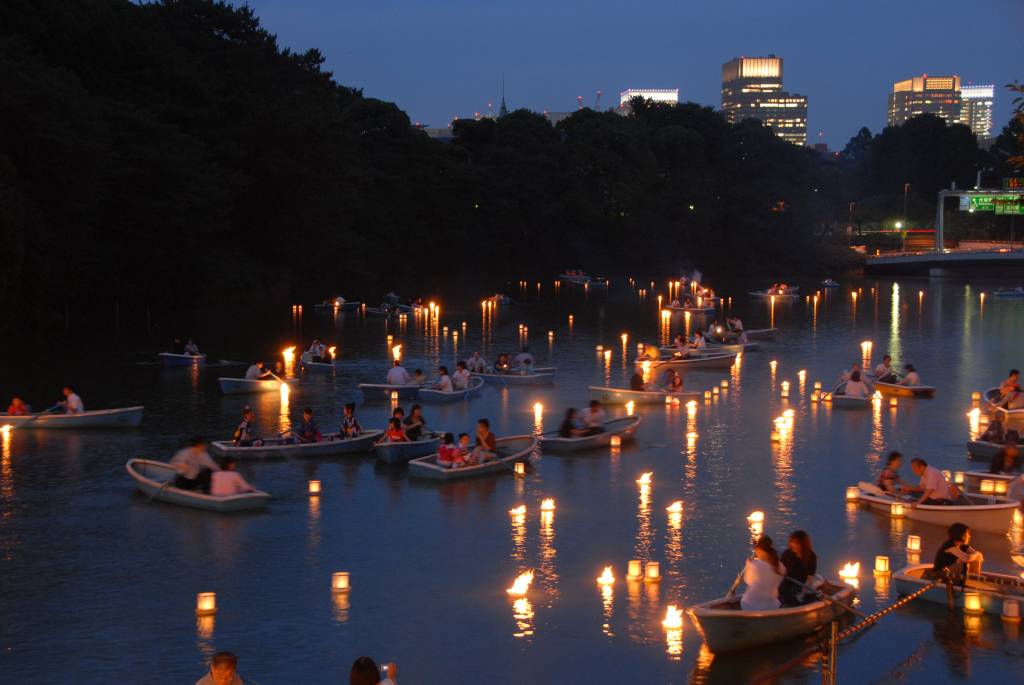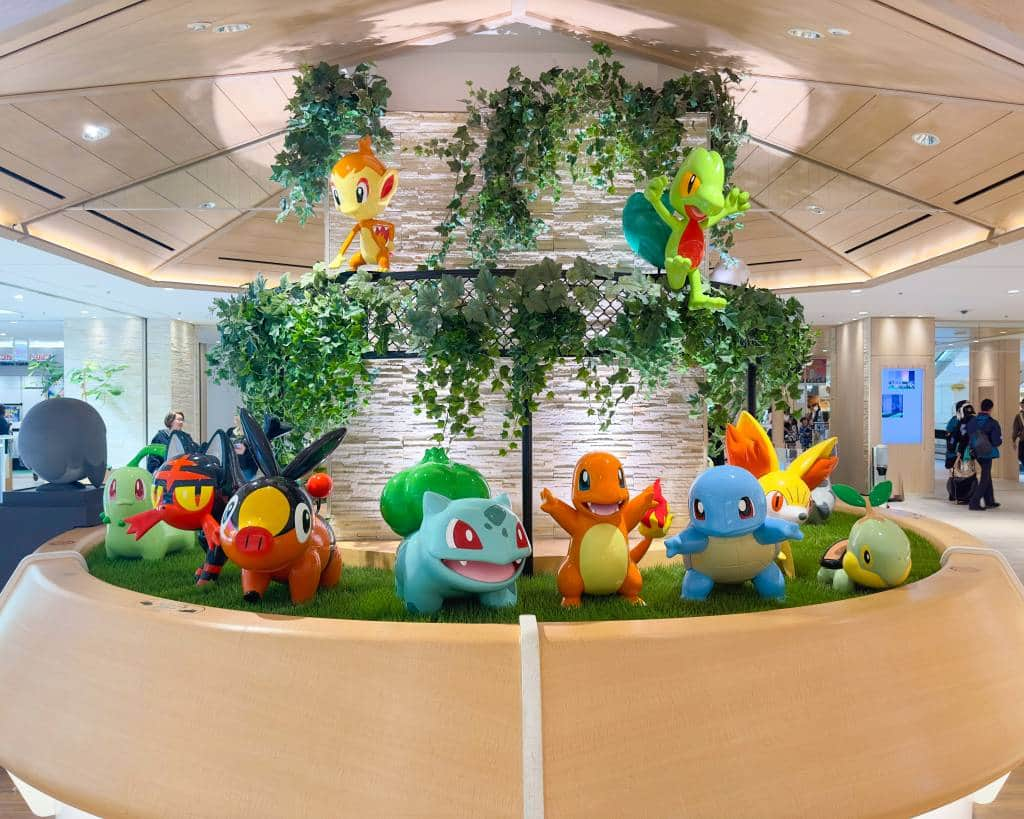Ready for some lovin’? Perhaps you stay in a guesthouse or tiny apartment with paper-thin walls, or simply have too many roommates all up in your business, and not in a good way. You could go to a regular hotel, but respectability is boring. Plus, who doesn’t love mirrored ceilings, jacuzzi tubs, and complimentary flavored condoms? Erhm…Tokyo love hotels, here we come!
Enter the Tokyo love hotel, or rabuho. Though this idea might seem somewhat sleazy to people used to the idea of no-tell motels back in the States, love hotels are clean and used not only by trysting lovers, but middle-aged couples looking to get away from the live-in in-laws (and vice versa).
Also called fashion hotels, couple hotels, or leisure hotels, these kitsch havens offer fun sleeping (or not sleeping) experiences for prices comparable to business hotels. Additionally, there are a few workarounds that can save you some extra yen.
What is a love hotel?
Although the concept of having a hotel specifically for the purposes of, well, sex goes all the way back to the Edo period, the first love hotels as we now know them started up in the late 1950s and early 1960s. At the time, Japanese homes were usually designed with sleeping areas doubling as living areas during the day and, as a result, not much scope for afternoon delight — and even less so if you had kids or live-in in-laws.
Increasing car ownership in the 1960s made the concept of motels more familiar, and the first Japanese love hotels on the edges of highways sprang up during that decade. Swings and vibrating beds were already part of the schtick, as were the themed rooms and frankly bonkers architecture characteristic of many older rabuho. (A lot of the flamboyant love hotel architecture does survive, though. We’re looking at you, Meguro Emperor in Meguro, Hotel Zebra in Ikebukuro, and Hotel UFO in Chiba).

Police scrutiny from the later 1970s onward pushed the more flamboyant features of love hotels indoors, and most newer ones have fairly nondescript exteriors that sort of blend into the Tokyo streets. In keeping with the on-the-DL protocol, some love hotels even have separate entrances and exits so that you and your honey can arrive and leave without being too conspicuous.
You’ll typically find rabuho near stations, in somewhat out-of-the-way areas in suburbia or industria, or near highways. There are maybe around 10,000 love hotels in Japan today (accounts vary wildly), which is a far cry from the 30,000 or so that existed during their golden age in the 1980s. Still, it’s been estimated that over a million couples visit love hotels every day.
In reality, many former love hotels have been converted into normal hotels — especially since the uptick in foreign tourists. While some properties have been totally gutted others have undergone less thorough transformation processes. As a result, if your budget hotel has a larger bathroom than the usual cramped shower/bath/toilet combo than it probably used to be a love hotel.
(And if you’re more interested in reading about rabuho than visiting them, take a look at this article or this book for an academic deep dive.)
Fun fact: the love hotel emoji (🏩) was among the first generation of emoji — how’s that for cultural relevance?

Love hotels in Tokyo and elsewhere in Japan can be identified by their creative names and often kitschy façades. Witness: Sweets Hotel Ruby Shibuya, Hotel XO Shinjuku, Casablanca Ikebukuro, the aforementioned Hotel Zebra, Hotel Ramses Club, Hotel Ring My Bell — need we go on? Often adorned with neon colors and generally gaudy decor, most love hotels have some degree of boudoir fancy that makes them easily identifiable.
How much does a love hotel cost?
Love hotels famously have “rest” (休憩) rates (for short stays of 2–3 hours) and “stay” (宿泊) rates for overnight use. Rest rates start around ¥3,000, while stay rates are about two to three times higher. Check-in times for a love hotel stay start pretty late — think 10 p.m. or even later, checking out around 10 a.m.
Saving money at a rabuho
One bargain to look for: “service time” (サービスタイム) or “free time” (フリータイム) is the best deal, typically because the hours are off-peak/inconvenient. For example, taking a room from 6 a.m. to 6 p.m. might be half the cost of the love hotel’s usual stay rate. Of course, rates vary by location, and you might not want to sleep the daylight hours away, but for night owls, dancing fools, all-night karaokers, and people willing to mess up their circadian rhythms for a deal (we salute you), service time just might be your jam.

Earning love hotel loyalty points
Finally, some love hotels offer membership cards. Just like at the supermarket or the coffee shop, you can earn points, discounts, and free stays with your loyalty to a certain chain. Prices for these cards vary; some of them are free, while others take a small membership fee — say ¥500 or so. Kind of a modern notch-on-the-belt (or bedpost) system. This will either give you great delight, or make you realize that you might save money moving into an apartment with thicker walls and fewer roommates.
Best love hotels in Tokyo
Here are some of the best Toko love hotels that can easily be booked through Booking.com or Agoda:
1. Hotel Lotus
IkebukuroFrom ¥12,000
Book here
This hotel is full of Japanese (and other Asian) iconography with plenty of bamboo and bright patterned wallpaper.
2. Meguro Emperor
MeguroFrom ¥10,000
Book here
A gaudy 1970s-era Cinderella castle and well-known landmark on the banks of the Meguro River. Arguably Tokyo’s most famous love hotel.
3. Hotel Balian Resort
ShinjukuFrom ¥30,000
Book here
A tropical resort themed hotel in Kabukichō.
4. Hotel The Hotel
ShinjukuFrom ¥16,000
Book here
Hotel The Hotel has a wide variety of room designs, but nothing too out there. Also, bonus points for that name.
5. Hotel Moana
OtsukaFrom ¥10,000
Book here
Simple, modern love hotel in Otsuka.
6. Hotel Rex
ShinjukuFrom ¥15,000
Book here
A modern love hotel inside a renovated building in Akasaka.
7. Hotel Pal
OtsukaFrom ¥15,000
Book here
Large beds and large bath tubs, what more could you want?
8. Hotel Savoy
UguisudaniFrom ¥8,000
Book here
We hope you like red, because that’s the primary color palette they used when decorating this hotel.
9. Hotel Blanche
ShinbuyaFrom ¥15,000
Book here
Creative neon lighting? Yes, please.
10. Sweets Hotel Machida
MachidaFrom ¥6,000
Book here
Journey out of Tokyo and get your dessert fix.

More love hotels in Tokyo
Here are some other love hotels that are popular, but can’t be booked online so easily.
- Hotel Alpha-In is a love hotel in Azabu that specializes in BDSM (simply known as SM in Japan). Conveniently located behind the Tokyo American Club.
- Hotel Chantilly is a Rapunzelesque love hotel in Akasaka dating from the 1960s. Reviews claim it has a rotating bed.
- Design Hotel NOX is a not too subtle “design hotel” in Gotanda with a bilingual website. Foreign customers are welcome.
How do I book a room at a love hotel?
Love hotels can be identified not only by their fetching fronts, but by the signs advertising rest and stay prices. Once inside, you’re likely to encounter a big board with pictures of various rooms and their prices. Rooms that are lit up are available; if they’re dark, they are occupied and you won’t be able to select them. Choose a room, and either press the button on the board itself or on a nearby machine.
Occasionally, you will have to deal with a human to whom you’ll tell your choice, but the clerk will usually be behind a small window in a wall, with only hands visible. Eye contact is almost never made. Unless it’s an old lady at the desk — then brace yourself for awkward greetings and no less awkward thanks on the way out. But either way, your secrets are safe here.
Sometimes you’ll get a key, but often you’ll be directed to just go to the room, where the door will be unlocked. Once in, the door locks automatically. Some love hotels do not allow re-entry into the room, so be aware of that if you were planning to leave for dinner. Payment is usually at a machine: sometimes in the room, sometimes by pneumatic tube (yes, really), and sometimes through the tiny reception window with the floating human hands. Typically, payment is made up front, and they’ll charge you if you overstay.
If you don’t want to leave your hotel or your room up to chance, Happy Hotel offers reviews by users (though again, you’ll need some Japanese, or Google Translate, to be able to read them).

Can you book a Tokyo love hotel room online?
Three cheers for the internet: booking sites like Booking.com and Agoda now have the option for you to filter for ‘Love Hotel’ as an accommodation type. And in case you have any doubts, many love hotels also indicate ‘Adults Only’ on their listing, so you know what you’re booking. Keep in mind when booking online that you probably won’t be able to book more than one room for two adults.

Note that most of the prices on the booking sites (even with discounts) are at the top end of the price range for these places, so if you can overcome the uncertainty of not knowing whether you’ll have accommodation for the night, booking on the day is the recommended option for getting the best deal. You can check our list of love hotels in Tokyo for some recommendations that can be booked online.
Who can use love hotels in Tokyo?
In short, any consenting adults. Most Tokyo love hotels tend to be anonymous, with little to no human interaction (other than with your special friend) during the transaction. However, there have been reports of people being turned away for not being the “right” clientele. These stories of refusal include same-sex pairs, groups larger than two, and non-Japanese looking (or speaking) people. However, we have never been turned away, and have visited quite a few establishments both in Tokyo and farther afield, like in good old Osaka. 😉
Editor’s note: Discrimination against same-sex couples by love hotels is illegal under Japanese law, though human rights activists are quick to point out that little is done to enforce it.
Where can I find love hotels in Tokyo?
Love hotels can be found all over Tokyo and Japan. Within Tokyo, the greatest concentrations of hotels are Uguisudani, which is near Ueno; Shibuya’s Dōgenzaka/Maruyama “Love Hotel Hill”; Shinjuku’s Kabukichō; and Ikebukuro’s east, north, and west exits according to Happy Hotel.

The site (in Japanese) has a fairly comprehensive listing of love hotels in Shinjuku, Shibuya, Roppongi, Ikebukuro, and beyond. It also includes addresses, ratings, pictures, and even some coupons for things like free drinks or a thousand yen off the room price.
But for the more spontaneous, a good bet is to just stroll around one of the districts, look for a love hotel whose features and fees fit your fancy, and saunter in.
What amenities do love hotels offer?
Indoors, you’ll find rooms decked out with themed decorations (or bland themeless rooms if it’s really budget), fancy bathrooms with showers for two, jet baths, etc., and a TV stocked with all kinds of, ahem, special channels. Unlike business hotels, you don’t have to pay extra for the juicier programs. Oh, and love hotels also often offer WiFi, too.
There will also sometimes be room service, hot tubs, vending machines with various toys, karaoke machines, video game consoles, massage chairs, disco lights, costume rental for some spicy cosplay, and more. We’ve stayed in rooms decked out with flowers, figurines, and tinkly lullaby music playing overhead (creepy), a Chinese opium den theme, a pole smack in the middle of the room, velvet paintings, the list goes on.
The bathrooms in love hotels tend to also be even more well stocked with toiletries than your average hotel: shampoo, conditioner, lotions, creams, hair products, and of course, contraception. Two seems to be the standard for free condoms, so if you’re planning a marathon, you may want to come prepared.
Note: Some love hotels may not supply any protection at all, thanks to rebranding and legalities.

Love hotel video guide
Love hotel FAQs

Are love hotels legal?
Yes, totally legal! Though the hotels themselves may engage in illegal activities, like tax evasion. Since 1985, love hotels have been regulated under the country’s Entertainment Business Law, which also regulates pachinko parlors.
Are love hotels safe?
There is nothing inherently unsafe about love hotels, though they are often the fictional settings of crimes in novels and dramas. Security cameras in common areas act as a deterrent against crime.
You may hear rumors that some love hotels secretly film guests in their rooms and sell the footage to amateur porn sites. This is unlikely (as explained here), but also not a concern unique to love hotels (locker rooms and unsupervised outdoor hot springs are also places where this has reportedly happened).
Are love hotels clean?
We cannot vouch for the cleanliness of all love hotels, but from our experience they are reliably clean. Older rooms may smell of tobacco (see below).
Do love hotels provide condoms?
Love hotels usually provide a few free condoms; look for them in a box by the bed. They may not be great condoms though, so we advise you bring your own. In a pinch, head to Don Quijote; there’s probably one nearby.
Are love hotels non-smoking?
Most older love hotels and ones outside of Tokyo are pretty much all-smoking establishments by default. Depending on the hotel, rooms might hardly smell of smoke at all or they might positively reek. There might be a couple of non-smoking rooms, though they might already be taken.
Within Tokyo, and especially within the major nightlife areas like Shinjuku and Shibuya, there will be enough options that you should be able to find one with a non-smoking room. Most likely non-smoking rooms will be indicated on the board with the universal non-smoking symbol.
Do love hotels have age restrictions?
All love hotel guests must be 18 years of age or older.
Can you stay multiple nights at a love hotel?
Love hotels are not intended for stays of longer than one night. Especially the ones that lock you in! So unless you have explicitly arranged for a longer stay (say, by booking through an online reservation portal), do not expect to be able to stay another night without first checking out (on time) and back in again (in the afternoon). Hotels vary wildly as to whether or not you’ll get a new set of sheets and towels (you can always try asking). Also: No, the love hotel cannot store your luggage for you during the day.
Can you stay in a love hotel by yourself?
Love hotels have long been wary of solo guests for fear of suicides and prostitution. That said, as the demand for rooms have let up in the past decade or two, more and more seem to be okay with people staying by themselves. And of course the more automated the check in process is, the easier it is for ~non-traditional~ love hotel guests to score a room.
Can groups use love hotels?
Again, this depends on the hotel, and also the check in process.
Pro tip: Use Happy Hotel to search (only in Japanese, unfortunately) for love hotels with non-smoking rooms and those that accept singles and/or groups.
Can I pay with a credit card at a love hotel?
Most love hotels, and especially in Tokyo, accept both credit cards and cash as a form of payment. Some may only accept cash, though.
Looking for someone to take to a love hotel? We have an article all about finding that special someone, on the cheap.
This article was first published in December 2014. Last updated by the editorial team in June 2024. While we make every effort to make sure our information is accurate, details may vary.


